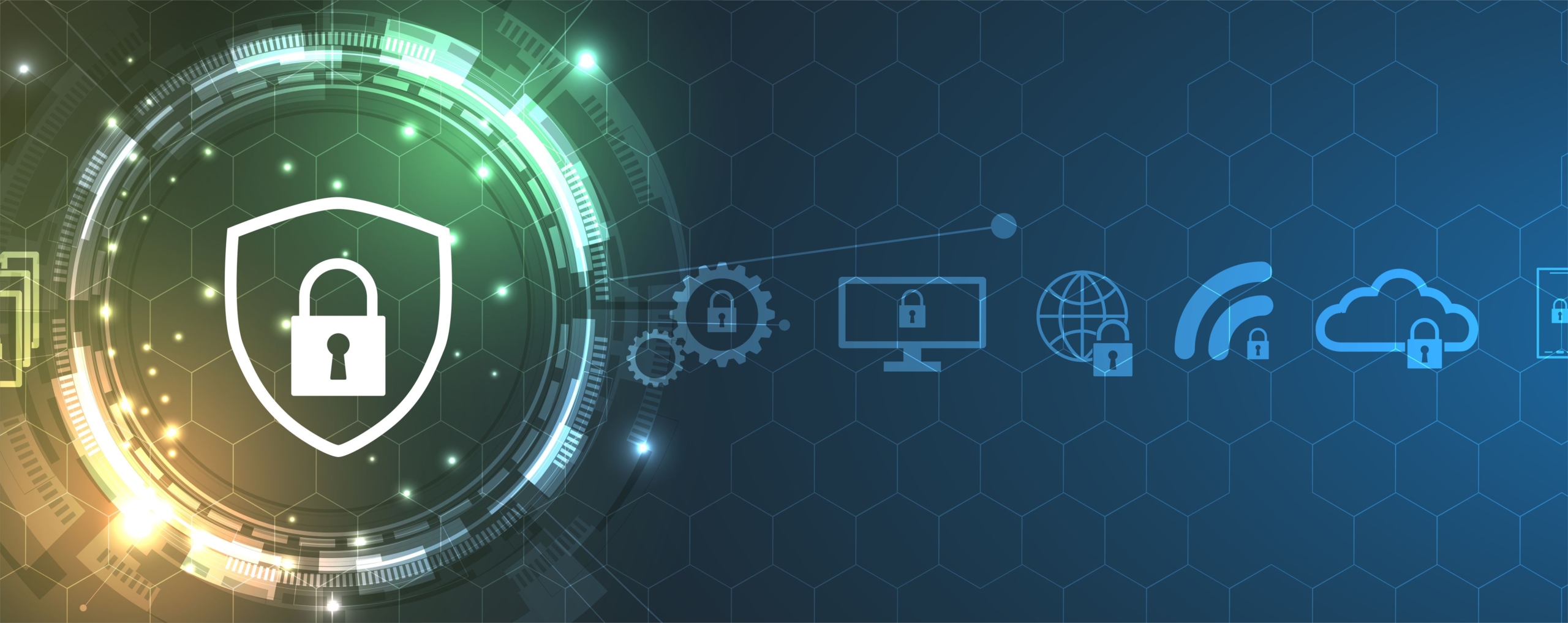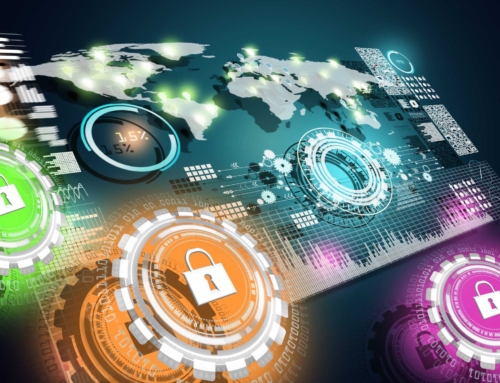The Financial Impact of Ransomware on Small Businesses
Understanding Ransomware and Its Rise Among Small Businesses
As experts in IT management, we at Alvaka have observed the troubling escalation of ransomware attacks on small businesses. These nefarious digital threats harness encryption to hold a company’s data hostage, demanding payment for its release. It’s a phenomenon that targets entities of all sizes, but for small businesses, the consequences are particularly severe. Unlike large corporations with vast resources, smaller firms often lack the robust cybersecurity infrastructure and protocols required to fend off such attacks, rendering them more susceptible to falling victim to ransomware perpetrators.
Exploring the landscape of digital threats: what small businesses need to know about ransomware’s proliferation and potential impact.
The financial impact of ransomware on small businesses can be devastating. With every aspect of modern business so deeply intertwined with digital technology, a single breach can cripple an entire operation. At Alvaka, we’ve seen the tumultuous effect it has on functionality and finances. Thorough awareness and a solid understanding of the types of ransomware that could attack our systems are the first lines of defense. We emphasize the importance of education as a preventative measure, ensuring that small businesses can recognize and respond to threats before they manifest.
Calculating the Financial Toll: Beyond the Ransom Demand
The ransom demand itself is merely the tip of the iceberg when measuring the financial repercussions of a ransomware attack. At Alvaka, we help small businesses take account of the full spectrum of costs that can accrue. This consideration extends to potential fines for data breaches, the expense of crisis management, and the investment in new security measures. Moreover, the intangible loss—customer trust and brand reputation—often translates into significant fiscal strain over the long term.
Breaking down the direct and indirect costs associated with a ransomware attack, illuminating the broader financial impact beyond the initial ransom figure.
Our team at Alvaka provides a comprehensive analysis, not just of the ransom that attackers demand, but also of the extended costs linked to the disruption. Our experience with small businesses underscores the stark reality of lost revenue due to operational downtime, the expense of professional recovery services, and the price of strengthening security post-breach. We help businesses anticipate these expenditures, blending foresight with fiscal planning to curb the impact.
Safeguarding Your Bottom Line: The Role of IT Management
In the struggle against the financial fallout of ransomware, effective IT management is indispensable. At Alvaka, we assert that prevention is always more cost-effective than remedy. Through vigilant IT management, we aim to shield the bottom line of small businesses by implementing robust security strategies, regular system backups, and employee training in cyber hygiene. Our approach is to establish a comprehensive IT framework that minimizes vulnerabilities and prepares businesses for swift recovery, should a breach occur.
Emphasizing the critical role that proactive IT management plays in protecting small businesses from the financial repercussions of ransomware attacks.
We don’t just focus on erecting digital defenses; our strategy also involves fostering resilience. By establishing regular audit trails, creating business continuity plans, and engaging in constant network monitoring, our team at Alvaka ensures that small businesses possess the means to bounce back from ransomware disruptions with minimal financial disturbance. In empowering our clients with these proactive IT services, we’re committed to transforming their network infrastructure into an unassailable fort against the rising tide of ransomware threats.
The Immediate Aftermath: Assessing the Damage
When the onslaught of a ransomware attack subsides, we are left to confront the immediate financial repercussions that jeopardize our vitality as a small business. Understanding the financial impact of ransomware on small businesses begins with acknowledging the daunting tasks that arise shortly after an attack. We are thrust into action, evaluating the extent of data encryption and loss while calculating funds necessary for possible ransom payments. Nevertheless, it’s worth noting that paying the ransom does not guarantee the return of data or prevent future attacks.
In this critical phase, our investment in emergency IT services soars as we aim to restore operations and secure our systems. These unanticipated expenses can be significantly high, representing a substantial financial strain, especially for small businesses operating with limited resources.
Financial impact of ransomware on small businesses: Downtime and Disruption
Ransomware doesn’t just lock away data; it disrupts the very core of our business operations. The financial impact of ransomware on small businesses is most acutely felt through the cost of downtime. Each minute our systems are down, revenue slips through our fingers. But beyond the immediate loss, the long-term implications are profound. A halt in business processes means delayed deliveries, missed deadlines, and a tarnished reputation that can erode customer trust. As we grapple with these disruptions, the priority becomes clear: instituting robust IT management practices to guard against further vulnerabilities.
Recovery is rarely as simple as flipping a switch. Restoring data and systems often involves a meticulous process that can stretch over days or even weeks, depending on the backup protocols we have in place. During this period, our aim is to minimize the impact on our day-to-day activities, but the loss of productivity among employees is inevitable as they divert from their usual tasks to assist in recovery efforts or simply wait to regain access to their tools. The culmination of these factors leads to a hidden but substantial financial burden that can leave a deep scar on our bottom line.
- Analyzing the scope of data and system compromise
- Allocating funds for recovery and ransom demands
- Investing in emergency IT services
- Rebuilding operations and customer trust
- Prioritizing IT management strategies post-attack
Resilience in the wake of a ransomware attack is not merely about weathering the storm; it’s about learning from the experience. Therefore, we prioritize the implementation of advanced security measures and insist on regular employee training to recognize and repel phishing attempts and other common entry points for ransomware. Moreover, we stress the importance of reliable backup solutions to ensure that should we fall prey to an attack, our ability to recover does not hinge on a ransom payment.
By sustaining a vigilant and educated stance regarding cybersecurity, we not only safeguard our assets but also project a level of trustworthiness to our clients and partners. They can operate with the confidence that we are proactively managing their data with the utmost care and expertise, shielding both their interests and ours from the detrimental financial impact of ransomware on small businesses.
Did you know? Small businesses face average downtime costs of $8,500 per hour during a ransomware attack, which often excludes the actual ransom payment.
Fortifying Futures: The Financial Impact of Ransomware on Small Businesses
Understanding the financial impact of ransomware on small businesses is essential for their survival and growth in a landscape marred by digital threats. The path to recovery and continuity post-attack is fraught with challenges, but it’s a journey we at Alvaka are committed to navigating alongside our clients. As we reflect on the daunting prospect of ransomware attacks, let’s fortify our resolve to champion robust cybersecurity practices and proactive IT management.
Empowering Small Businesses Through Vigilant IT Solutions
At Alvaka, we firmly believe in empowering small businesses with the foresight and tools necessary to mitigate the risks of financial ruin due to ransomware attacks. By remaining vigilant and adopting a comprehensive suite of IT solutions, we can guard the lifeblood of your enterprise—its data—against malicious actors. Our commitment to your business continuity plans includes thorough risk assessments, extensive staff training, and the deployment of cutting-edge technologies designed to ward off potential threats.
Driving Recovery and Resilience Post-Attack
Even with the best preventive measures, the specter of ransomware can strike at the heart of a small business’s operations. It’s in these critical moments that our ransomware recovery strategies become invaluable. We understand that the financial implications of an attack extend far beyond the ransom itself; hence, we put forth an unwavering commitment to restoring systems promptly, preserving your reputation, and minimizing financial strain. Our rapid response team is trained to navigate the complexities of these incidents, providing peace of mind and a clear path to recovery.
Laying the Groundwork for Lasting Security and Prosperity
As we support small businesses in grappling with the financial impact of ransomware, we’re not merely restoring systems; we’re laying the groundwork for lasting security and prosperity. Our strategic approach to IT management encompasses both immediate crisis resolution and the implementation of long-term, resilient cybersecurity practices. We believe that educating and equipping our clients is as crucial as deploying our technical expertise, thereby creating a symbiotic relationship that fortifies against future threats.
A Commitment to Safeguarding Your Fiscal Health
We understand that the journey to recovery and resilience can be a daunting one for small businesses, and the financial impact of ransomware is a burden too heavy to bear alone. At Alvaka, we don’t just offer services—we offer a partnership founded on the commitment to safeguarding your fiscal health. With our proactive and comprehensive IT management, we stand as custodians of your future, ensuring that the promise of growth and security remains unshaken in the face of digital adversity. Together, we can turn the tide against ransomware, reinforcing your business’s defenses, and setting a course toward a secure and prosperous horizon.
FAQ
What is ransomware and why should small businesses be concerned? ▼
Ransomware is malicious software that encrypts a victim’s files or systems, demanding payment for access restoration. We underscore the concern for small businesses as they are often viewed as easy targets due to generally lesser cybersecurity measures, which can result in significant financial and reputational damage if they fall prey to such attacks.
What are the direct costs associated with a ransomware attack? ▼
Direct costs of a ransomware attack typically include the ransom payment demanded by cybercriminals, but they can also encompass expenditures for expert negotiation services, digital forensics, and any immediate IT infrastructure repairs to close security gaps and restore data.
How can IT management protect small businesses from ransomware? ▼
Proactive IT management can safeguard our small businesses by implementing robust security practices such as regular software updates, employee cybersecurity training, robust backup solutions, and continuous monitoring for potential threats, thereby mitigating the risk of ransomware incidents.
What are some common indirect costs following a ransomware attack? ▼
Indirect costs can be extensive, often including prolonged downtime, lost revenue from disrupted operations, regulatory fines tied to data breaches, and the long-term impact on customer trust and brand reputation that can affect future earnings.
How does operational downtime affect a small business after ransomware hits? ▼
Operational downtime leads to immediate loss of productivity and revenue as business activities are halted. This downtime not only affects service delivery and sales but can also result in contractual penalties and lost opportunities, severely impacting our bottom line.
Can paying the ransom guarantee the recovery of our data? ▼
Paying the ransom does not guarantee the recovery of our data. There’s always a risk that the attackers won’t provide the decryption key or that the decryption process fails, leading to permanent data loss despite payment.
Are small businesses capable of recovering from the impact of ransomware? ▼
Recovery is possible, but it depends on several factors including the size of the business, preparation, the severity of the attack, and the availability of up-to-date backups. Moreover, it requires a strategic recovery plan and sometimes external support to restore operations and prevent future breaches.
How important is employee training in preventing ransomware attacks? ▼
Employee training is vital in our defense against ransomware, as many attacks begin with user error, such as falling for phishing emails. By educating our staff on the threats and proper security practices, we can significantly reduce the likelihood of an attack.
What role do backups play in our defense against ransomware? ▼
Backups serve as an essential safeguard, ensuring that our data can be restored without succumbing to ransom demands. However, it’s crucial that backups are regularly updated and stored securely, preferably with an off-site or cloud-based solution that ransomware cannot easily compromise.
How does a ransomware attack affect customer trust and our business reputation? ▼
An attack can severely damage our relationship with customers as it undermines trust in our ability to protect their sensitive information. Accordingly, it can lead to customer attrition and a tarnished reputation, which can have long-term financial ramifications and affect our competitive standing in the market.








 Smoke testing is a term used to describe the testing process for servers after patches are applied.
Smoke testing is a term used to describe the testing process for servers after patches are applied.  This is a basic cost calculator for you to compute your typical monthly cost for patching your servers, PCs, laptops, tablets and associated application software. It also forms the basis for you to begin calculating your Return on Investment for software patching, or for comparison with alternatives to the manual process of patching operating systems and application software—such as Patch Management as a Service, also known as Vulnerability Management as a Service.
This is a basic cost calculator for you to compute your typical monthly cost for patching your servers, PCs, laptops, tablets and associated application software. It also forms the basis for you to begin calculating your Return on Investment for software patching, or for comparison with alternatives to the manual process of patching operating systems and application software—such as Patch Management as a Service, also known as Vulnerability Management as a Service.